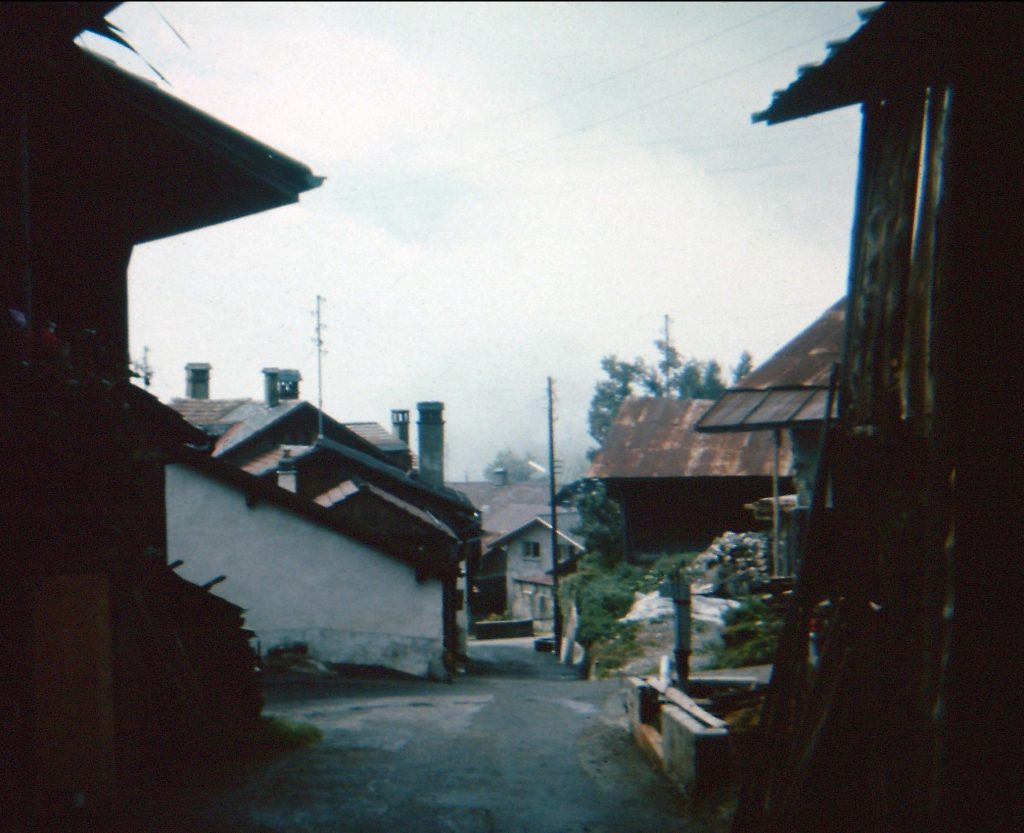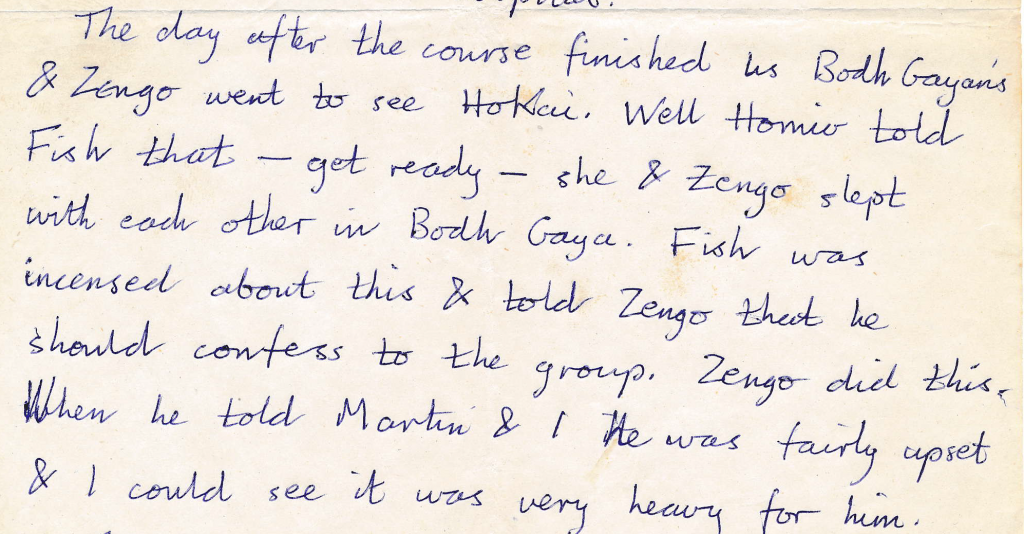One of the tasks of students and helpers at L’Abri was to make a trip early each morning into the small village of Huémoz. Even though it looked like a picture postcard, it was very much a working Swiss village. Strapping a large wicker basket onto our backs we headed down the hill. We needed to stop at both the boulangerie and the laiterie. At the laiterie, we would fill cans with creamy milk fresh from the local cows. At the boulangerie, we would fill our nostrils with the most delightful smells and the basket with the most glorious loaves of crusty bread. As we left the shops, the shop keepers would bid us adieu in lilting Swiss French (much more singing than speaking), “Au revior, merci!”

Our meals were usually fairly basic fare, but it was all hearty and freshly prepared. The community grew much of its own produce in the summer. Much of the meat came from the local boucherie. A crew of students would prepare each meal, supervised by one of the full-time helpers or workers. Edith Schaeffer insisted that even simple fare be carefully prepared and elegantly presented. During the spring and summer months, there were usually bouquets of cut flowers on the table. During and after the meals, there was a free-flowing discussion on a variety of topics, some initiated by the workers, others prompted by students’ questions. If there was more than one table, often there would be multiple free flowing discussions!
I truly regret that I didn’t keep a journal while I was at L’Abri. It would be helpful now to trace exactly how my thinking about Jesus Christ and the Christian faith evolved through the months of June and July. There were no flashes of light or voices from Heaven. There was just the growing conviction in the core of my being that the Good News of Jesus Christ was really true and what I was experiencing in the community was genuine Christian love. Indeed, one of the things that Dr. Schaeffer emphasized repeatedly was the necessity of Truth and love to go hand-in-hand. One of the ways he put it was, “Biblical orthodoxy without compassion is surely the ugliest thing in the world.”
Something happened about this time that caused me to consider the Christian faith even more seriously as a framework for understanding reality (as opposed to something like the Eastern worldview). I had written to the group with whom I practiced Zen Buddhism in India to assure them that I had arrived safely in Switzerland and to give them my initial impressions. Somewhat to my surprise, I received a packet of letters with a personal note from most of the members of the group.

Many of the notes expressed disillusionment. The group discovered that our Zen Buddhist monk who had claimed to have renounced the world had been sleeping with one of the women in our group, thus violating one of his monastic vows. After that revelation, the members of the group began to scatter in various directions, some looking for a different guru and others returning to their home countries. Most of them remained convinced that the reality they were looking for was to be found within themselves and that the right teacher would be able to guide them in their continued search.
It was clear from the letters that Zengo was upset that he had betrayed his monastic vows and had failed those who were looking to him to guide them toward enlightenment. Yet, after that failure, where did Zengo have to turn? Buddhists have no category for true moral guilt before a personal, holy God and no concept of an objective forgiveness available for that guilt. I was beginning to see in the Christian faith not just the reality of guilt and condemnation before a God who cannot tolerate rebellion, but the glory of full and free forgiveness open to all who come to Jesus Christ by repentance and faith. “[God] has delivered us from the domain of darkness and transferred us to the kingdom of his beloved Son, in whom we have redemption, the forgiveness of sins.”
At the time, I did not reckon that the moral failure of one Buddhist monk conclusively discredited Buddhism as a whole. However, it further confirmed my decision to focus on the Christian faith. There was something very different about this worldview! I was still only “at the edges” of Christianity. But, I had learned enough to realize that this faith reveals a Living God, existing before us and outside of us. This God promises to supply the power of the resurrected Jesus to those who place their faith in Him. While it is true that there are professing Christians who have fallen deeply into sin, the Christian claim is that the Holy Spirit provides real believers with a source of power to live a morally upright life, a power found in no other religion. This was mind blowing for me!

